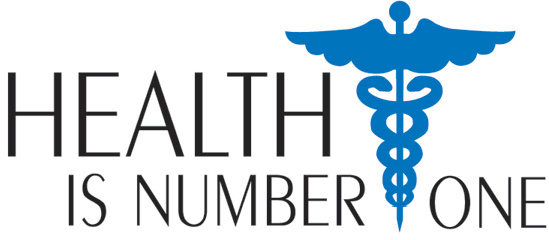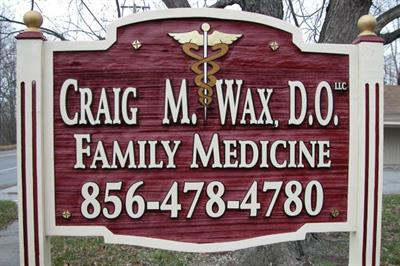Health Library ~ Family Medicine in Mullica Hill, NJAll material copyright Craig M. Wax, DO unless otherwise indicated Sexually Tranmitted Diseases (STD's)
Things You Should Know About Sexually Transmitted Diseases When young women decide to become sexually active, they must think about the potential risks of exposing themselves to sexually transmitted diseases (STDs). STDs, as the name implies, are infections spread by having sex with someone who already has an infection. This problem affects young people in alarming numbers. In fact, statistics show that nearly two-thirds of all STDs occur among people under the age of 25. The Most Common STDs According to a 1998 study conducted by the Kaiser Family Foundation, approximately 15 million new cases of STDs are diagnosed every year. This same study found that by the age of 24, one in three sexually active people will have contracted an STD. "Sexually transmitted diseases are very common, and they often provide no warning signs," cautions Margaret Nusbaum, D.O., an osteopathic family physician in North Carolina "The 'nicest' person can still have an STD, so young women should always be careful when engaging in sexual activity." * Acquired Immunodeficiency Syndrome (AIDS)-Caused by the human immunodeficiency virus (HIV), this disease destroys the body's ability to fight off infection. * Chlamydia-The most common of all STDs, its symptoms can include abnormal genital discharge and a burning sensation during urination. * Genital Herpes-These infections are caused by the herpes simplex virus. An infected person may develop painful blisters or open sores in the genital area. * Genital Warts-This STD is caused by a virus related to the one that causes common skin warts. Genital warts can lead to cervical cancer in some women. * Gonorrhea-The symptoms for this infection include abnormal genital discharge and painful or difficult urination. * Syphilis-Symptoms may include painless sores on the genitals, in the mouth or on the fingers; enlarged lymph nodes in the areas with sores; fever; fatigue; and loss of appetite. However, syphilis may go undetected because its symptoms can be mild and may quickly disappear. If left untreated, though, the infection invades internal organs, bones and the brain, causing severe health problems. Do You Think You Have an STD? "If a young woman has the slightest thought that she may have contracted an STD, the most important thing for her to do is get tested," stresses Dr. Nusbaum. "The consequences can be extremely serious if symptoms are ignored." * Infertility-The permanent inability to become pregnant. This is a condition that cannot be reversed. * Ectopic pregnancy-A pregnancy outside the uterus that makes it impossible for the fetus to develop. This condition poses serious health risks to the woman during the pregnancy. * Miscarriage-The loss of the fetus before the woman reaches her 20th week of pregnancy. * Passing the STD to the baby-If this happens and treatment is delayed, the baby could become sick, might develop lifelong health problems, and could possibly die. Dr. Nusbaum recommends a visit to your physician or a medical clinic if you are sexually active and experience any of the following symptoms: * Any sores or bumps near or on your genitals, anus or mouth. She also notes that symptoms may not appear until several months after contracting an STD. Sometimes, you may not experience any symptoms at all-but that doesn't mean the STD is any less dangerous. Whether experiencing symptoms or not, Dr. Nusbaum highly advises young women to get tested if they have had sex with a new partner within the last three months, and they did not use condoms. The Prevention of STDs As many people already know, the only 100 percent effective way to prevent STDs is by abstaining from all sexual contact. However, if young women decide not to abstain from sex, they should take certain precautions before engaging in sexual activity. * Know your partner's sexual history and limit your activity to one partner. * Always use a condom and consider using a spermicide for additional protection. * Learn to recognize the physical symptoms of STDs and look at your partner's body for any signs of rashes, sores or discharge. * Get a Pap smear every year and ask to be tested for STDs if your physician does not automatically conduct such tests. Along with sexual activity comes the responsibility of protecting your health. Any actions you take or fail to take right now can have damaging effects for years to come-including infertility, abnormal pregnancies and reproductive cancers. Simply taking a few precautions can make a huge difference when it comes to your well-being. As physicians who emphasize prevention and wellness, D.O.s strongly support the U.S. Surgeon General's Healthy People 2010 initiative in the quest to improve quality of life and increase the number of years of healthy life. The American Osteopathic Association (AOA) reminds you that November 12-18 is National Osteopathic Medicine Week. This year's target group is young women from the ages of 12 to 24. During this time, osteopathic physicians (D.O.s) will work to raise awareness among young women regarding the many issues they face as they strive to maintain healthy lifestyles. In addition, D.O.s hope to educate them on how preventive care can help maintain good health throughout their lives. D.O.s are fully licensed physicians who have additional training that focuses on the body's structure and function as well as its ability to heal itself. For more information on osteopathic medicine or to locate a D.O. in your area, call the AOA at 1.800.621.1773, ext. 8252, or visit the AOA's Web site at www.aoa-net.org. Did You Know...? * The cervixes of young women are not fully mature, which makes it easier for them to contract STDs. * One in four sexually active teens is infected with an STD. * By the age of 24, one in three sexually active people will have contracted an STD. * The direct costs of treating STDs and their complications is $8.4
billion each year.
Sources: American Social Health Association,
You can contact the following organizations for additional information: American Social Health Association
Centers for Disease Control and Prevention
Planned Parenthood Federation of America
|
|





